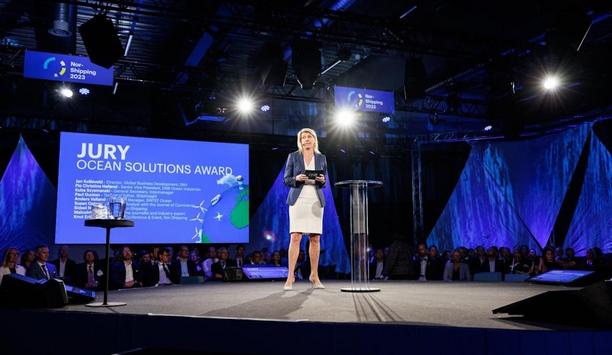Under Zero-Emission Accelerating Ship Finance (“the Program”), which is jointly operated by Development Bank of Japan Inc. (DBJ) and ClassNK, ClassNK evaluated the ammonia carrier “GAS INNOVATOR” (IMO No. 9958688), which was designed and built based on the basic certification for ammonia-fuel-ready ships and is owned by IINO Kaiun Kaisha, Ltd. (IINO Lines).
Development Bank of Japan Inc. (DBJ) provided financing to IINO Kaiun Kaisha, Ltd. (IINO Lines).
Comprehensive scoring model
In the shipping industry, where environmental regulations are becoming stricter as the industry moves towards decarbonisation, ClassNK evaluates ships based on a comprehensive scoring model jointly developed with DBJ from the perspective of 'decarbonisation, environmentally friendly performance, and innovativeness', and DBJ provides investment and financing.
The project supports initiatives that contribute to the transition to decarbonisation from both IR and financial perspectives.
Environmentally friendly and sustainable transportation
IINO Lines has for many years been engaged in the transportation of liquefied gases
IINO Lines has for many years been engaged in the transportation of liquefied gases, such as LPG, ammonia, and LNG, and in recent years has been focusing on the realisation of more environmentally friendly and sustainable transportation, including the development of alternative fuel–powered ships.
The ship, built at Hyundai Mipo Dockyard and delivered to IINO Lines in February 2024, is an environmentally friendly ammonia carrier capable of being converted to become ammonia-powered sometime in the future.
Assessment details
The following points were highly evaluated in this assessment of the vessel:
- The ship is designed for conversion to ammonia fuel (ammonia-fuel-ready) to enable zero-emission in the future.
- The ship is compliant with the Energy Efficiency Design Index (EEDI) Phase 3 requirements achieved before the enforcement of the regulation and meets the NOx Tier III regulation.
- An air seal system is used on the stern tube to prevent the outflow of lubricating oil, and environmental soundness at its recycling is addressed by planning to develop and maintain an Inventory of Hazardous Materials required by the Ship Recycling Convention.
“A” rating
The ship was given an “A” rating as a 'ship with high decarbonisation, environmentally friendly performance, and innovativeness', recognising that adequate environment-related investments have been made.
Through the expansion of the Program, DBJ and ClassNK will support shipping and shipbuilding companies’ efforts to contribute to the transition toward decarbonisation and work together to accelerate the transition toward decarbonisation in the entire maritime industry.










